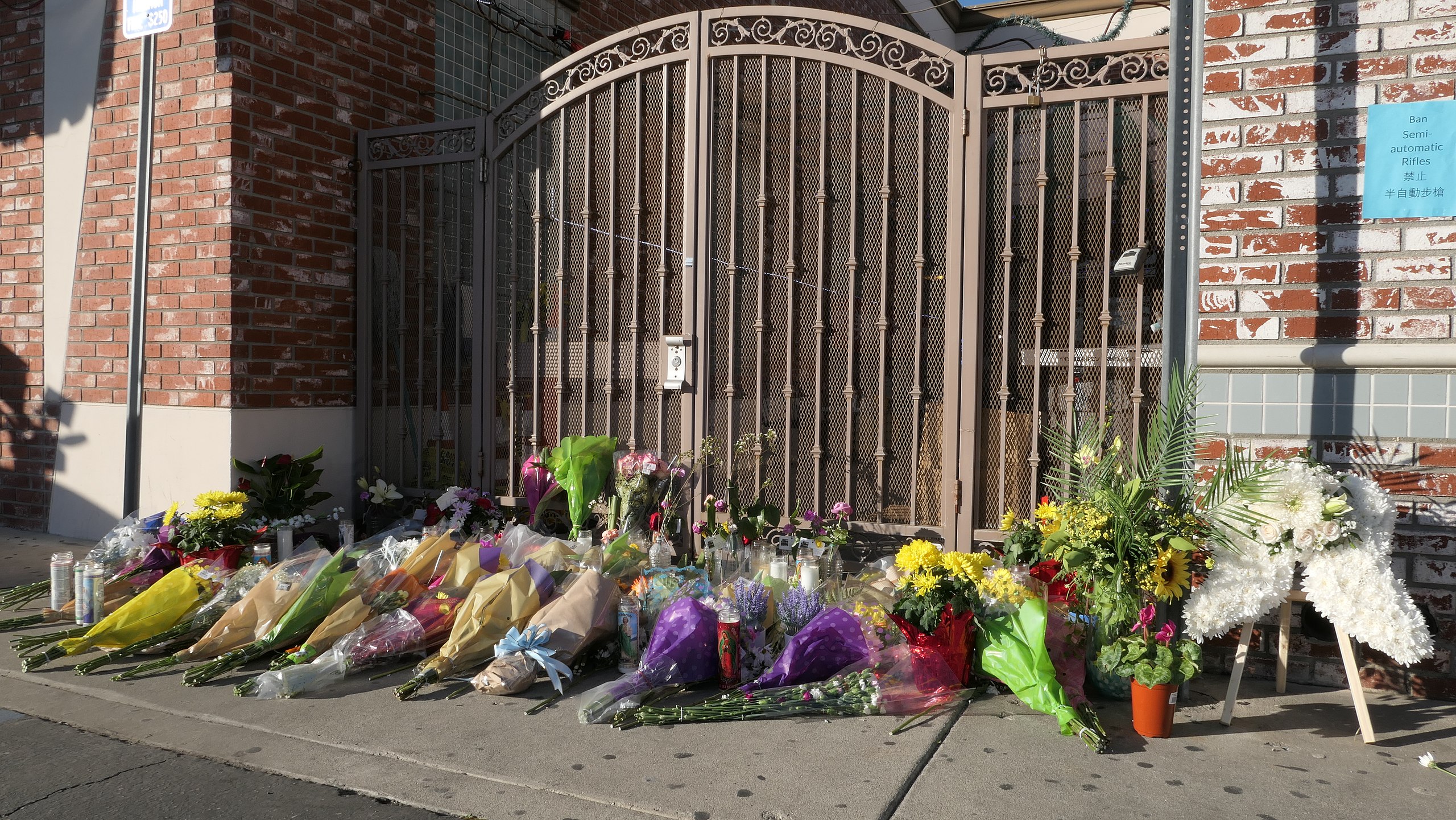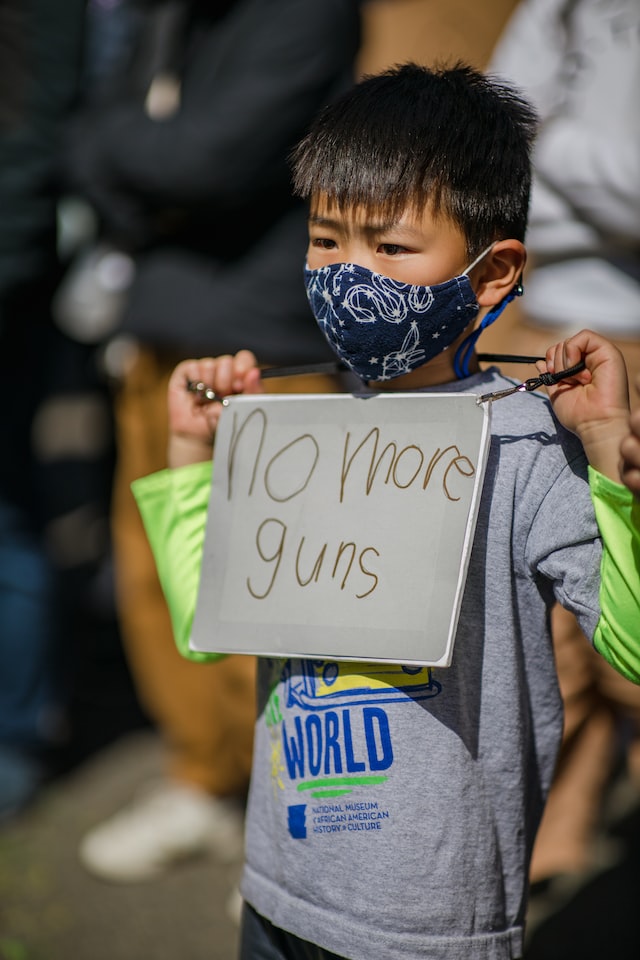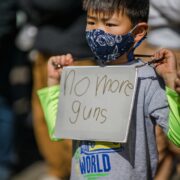
CALIFORNIA’S vast Asian American and Pacific Islander (AAPI) community has been wrought with multiple tragedies: the Lunar New Year party massacre on Jan. 21 that killed 11 people and injured others and the Jan. 23 Half Moon Bay shooting that killed seven people.
Most of the victims of these two murderous rampages were Asian Americans and members of the Hispanic community, but there continues to be little to no clear explanations for what led to these tragedies.
With the proximity of these attacks and the widely celebrated Lunar New Year, the Asian American community is on high alert, especially as it tries to move on from wrongly being placed in the crosshairs of racist violence and harassment during the peaks of the COVID-19 pandemic.
Gloria Pan, Senior Vice President, National Member Engagement, Campaign Innovations & Gun Control at MomsRising, said in a national press briefing, “This was a horrific intrusion on one of our most cherished holidays” and that following the string of anti-Asian attacks, the Asian American community is “feeling more unsafe than ever.”
The many families of these victims are still healing and reeling from the sudden deaths of their loved ones, most of whom were in the coveted twilight years of their lives. Seeking solutions or pondering what could have been done to prevent these tragedies won’t bring back their loved ones, but it’s crucial to prevent these kinds of attacks from happening, Pan said.
It’s important to point out that it is unclear if the motivations behind these murders were related to any hate crime, as defined by the U.S. Department of Justice, in the way that the 2021 Atlanta spa shootings were.
Investigators of the Monterey Park massacre have yet to confirm a motive for the shootings; the shooter killed himself the following day.
A Half Moon Bay prosecutor told reporters that the shooter may have snapped after he was forced to pay $100 to repair a forklift he damaged at work and alleged bullying from his co-workers and long working hours.
Regardless of the motive, Asian American leaders across the country recognize the presence of military-grade firearms in both events, sparking eerily familiar conversations about the gun epidemic in the United States.
According to Gun Violence Archive, there have been 40 mass shootings in the U.S. in 2023: more than there have been days in the year so far. (The organization categorizes a mass shooting as an event where three or more people are shot.)
Statistically, the United States dominates the world in the number of gun-related deaths and homicides. In 2020, those in the U.S. were responsible for 79% of gun-related killings; that same year, Canada was responsible for 37%, Australia for 13%, and the United Kington for 4%, according to data from the U.S. CDC, UK House of Commons, Statistics Canada, and the Australian Institute of Criminology.

Gun ownership is also significantly higher in the U.S. than in any other country, with an estimated 120.5 firearms per 100 residents — this is up from 88 per 100 in 2011, according to a Small Arms Survey.
“Only in America do we see this kind of carnage, this kind of chaos, this kind of disruption of communities and lives,” California Governor Gavin Newsom said last week.
According to AAPI Victory Alliance Executive Director Varun Nikore, 70% of Asian Americans support stronger gun control legislation but noted that interest in gun ownership among AAPIs, along with the U.S. population in general, has increased since the Covid-19 pandemic.
Like the many mass shootings that reach national and international attention, urgency toward stronger legislation that makes it harder for the wrong people to get guns occurred almost immediately in the aftermath of the Monterey Park shooting.
“No one policy will solve this issue, but an assault weapons ban will dramatically reduce these mass shootings,” said Po Murray, co-founder and chairwoman of gun control group Newtown Action Alliance and Newtown Action Alliance Foundation.
Murray also stressed the importance of stronger restrictions and practices in purchasing firearms in general. Currently, lawmakers in the U.S. Congress are pushing for safer storage solutions for firearms and permit requirements to purchase guns.
In addition to gun control legislation, Asian American community leaders also believe that mental health should a priority and that counseling services for Asian immigrants should be more accessible.
A Stanford University panel in 2022 stated that in one study, less than 9% of Asian Americans sought mental health services or intervention over one year compared to 18% of the entire U.S. population.
It’s unconfirmed whether either the Monterey Park or Half Moon Bay shooter was diagnosed with a mental disorder, but mental health is a usual suspect in mass shooting investigations.
Dr. Brett Sevilla, a Filipino American medical director at the Los Angeles-based Asian Pacific Counseling and Treatment Centers (APCTC), told Ethnic Media Services that elderly Asian immigrants are not as likely to prioritize mental health counseling as a solution.
“Plenty of elderly Asian immigrants have unserved psycho-social support needs, but there is an intense stigma related to mental illness,” Sevilla said, noting that the collectivist thinking of many AAPI families can make one person’s struggle a reflection of the entire family. “Most families will try to contain it within the family or may reach out to clergy. A psychiatrist is very low down the list.”
According to Dr. Sheila Wu, director of APCTC, it’s common for elderly Asians, especially men, to portray themselves as strong and silent, which often belies what’s really going on mentally.
“In our culture, a man in his 60s is a father figure, who does not become vulnerable, share his feelings, or say he needs things. He would feel a lot of shame if he did,” Wu said.
The investigations into both shootings are ongoing.






